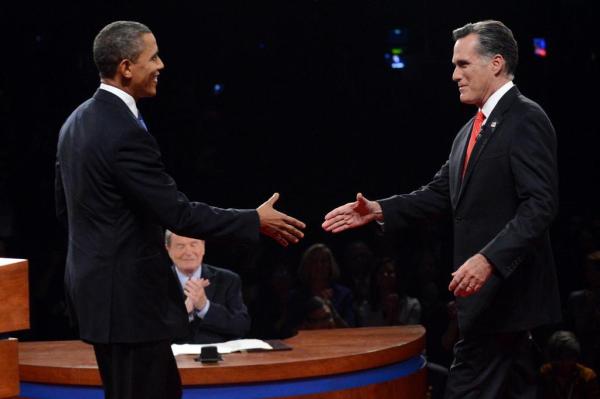U.S. Elections and the Evangelicals.
For the first time in its history, the United States no longer have a Protestant majority, according to a recent study. This was a major American media headlines this week.
Since the Pilgrims arrived, America was a nation predominantly Protestant. But the century brought drastic changes. The percentage of adults in the U.S. Protestants reached 48 percent in its steady decline since decades ago. Meanwhile, the number of Americans who have no religion is growing, especially among brancos.Essa is the first time that the Pew Forum on Religion & Public Life reported with certainty that the number of Protestants fell down 50 percent.
This decrease was already long overdue and comes at a time when the U.S. Supreme Court has no judge Protestant, and when the Republican Party, whose leaders are historically Protestant, has a candidate for president and vice president who are not Protestants . Among the reasons for the change is that large traditional Protestant denominations, embraced an aggressive liberalism that has produced pastors Presbyterians, Lutherans and Anglicans gay, has removed more conservative members, who seek alternatives, including the non-denominational churches, which are mostly charismatic and neo-Pentecostal. The most charismatic churches are more conservative, more closed to the ordination of gay pastors and more open to the Holy Spirit and his gifts, while large U.S. traditional Protestant denominations are usually the exact opposite: they are more progressive, more open to the ordination of gay pastors and more closed to the Holy Spirit and his gifts. But not everyone is opting for non-denominational churches. A large number of members simply abandons the traditional Protestant churches and is without religion. The number of those Americans who want no religion now stands at 20 percent.
According to recent report, "43% of evangelicals in their late teens and young adults have left the traditional church [Presbyterian, Lutheran, Baptist, etc..] To follow more liberal beliefs."
The major concern is that with the explosive growth of liberalism in Protestant churches and steady loss of members, Protestantism in the U.S. is following the path of Europe where the Reformation churches are struggling not to die. This trend has political implications, including for America's future.
American voters who describe themselves as having no religion voted overwhelmingly in political leftists, who already had considerable support from voters Protestant progressives.
Pew found that Americans who have no religion supports abortion and gay "marriage" in a much higher rate than the Protestant progressives.
Evangelicals progressives have always been an important constituency of the Democratic Party aggressively leftist line. But now Americans without religion show voters be stronger for that party.
President Barack Obama, who is the Democratic Party, is a progressive evangelical and great promoter of Islam.
Conservative evangelicals, composed largely of charismatic, Pentecostal and neo-Pentecostal, prefer the Republican Party, which has relatively less progressive political goals, but is becoming less conservative and evangelical is under less influence.
For the first time in the history of the Republican Party, the candidate for president, Mitt Romney is a man belonging to Mormonism, a non-Christian cult.
The conservative Christian voter is faced with a cruel dilemma in choosing candidates in the presidential race of 2012: a Mormon or a dubious intentions of progressive evangelical who leaves no doubt regarding its intention already well known to impose the gay agenda in the world whole, with the powerful machine of the U.S. government.
Romney may be less aggressive, but its political history is also progressive. The first U.S. state to legalize gay "marriage" was Massachusetts, under the government of Romney.
Thus, the competition of 2012 is between a Mormon with a progressive evangelical progressive madly.
The conservative moral decisive breakthrough today in American politics and society has been done mostly by neo-Pentecostal and charismatic, but they do not yet have the numbers and social and political power that the traditional Protestant churches had until recently. Rather, conservatism charismatic faces resistance from the American left, is of historic churches that have embraced liberalism or the media itself pro-abortion and pro-gay "marriage".
What could save U.S. evangelicals a catastrophic fate is back among the major Protestant denominations, the example of Anthony Comstock, a nineteenth-century American evangelical considered champion in the fight against pornography, contraception and abortion.



Comments
Post a Comment